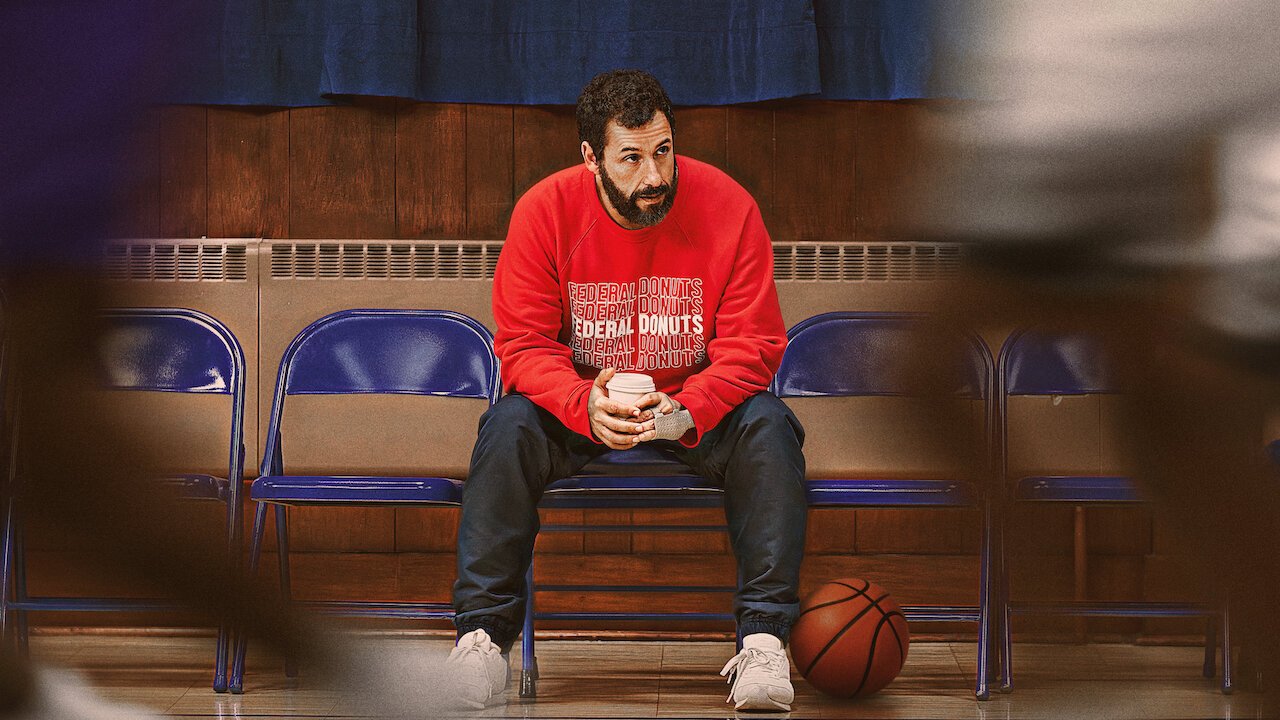I really do understand why folks find this movie appealing. It's a steady Adam Sandler ( himself a bit of an underdog considering how most people categorize his career then and now) continuing to grow right before our eyes becoming one of the more fascinating and interesting actors of our time. It's Queen Latifah getting to play just a bit outside of type and doing it with a certain kind of wilful glee that brings a smile to one's face. It's the beat down man, a scout, a small link in a great big chain driving around in a Chevy Malibu somehow able to fund all these various basketball “doctors” and hotel stays by himself without the aid of a basketball team and their corporate money because he's a doer, and a humble man, the great sweet spot that is the underdog. Last but of course not least it's basketball! “We love this Game” is the NBA's slogan, and very few slogans are as simple and true. I love this game, I love it a little too much to watch a movie that centers it and the aspect of scouting and doesn't really talk much about how to deploy actual skill, how to define it in a player. A movie featuring a scout finding a phenom that has no interest in talking about things like whether or not Bo is a traditional center who needs to learn to play more of an outside game with more finesse, or ( more likely ) a player that has a lot of skill behind the three point line, and moving with the ball that needs to learn to play more traditionally under the rim, or get tougher under it. When training there is no talk of what they're trying to train him for or what they want him to do as hes clearly in shape and looks the exact same after all this training. These are details that add to authenticity and engage us further into the story. I was frequently confused about Bo's level. Is he a phenom or a great rotational player? Would you fight this hard for a role player? If he's a phenom, there'd be no way anyone would be dissuaded by the fact that he gets a little ruffled when it gets hot, and truthfully if he was, while it may show up in regards to the loss, he would still be ballin regardless. How many phenomenonal talents have we seen who have weak constitutions or a soft personality, no one denies their talent. Why are we still talking about or allowing the white conservative talking point that being a trash talker is synonous with being a villain, especially when movies almost always make that type of villain black? While I wanted to like or maybe even love this movie I was deterred constantly at every turn by a movie which jettisoned almost every single interesting or fascinating plot point or direction for another that was tired and familiar. Like the way it ignores its interesting female characters be it Queen Latifah or Heidi Gardner as Kat Merrick the daughter of Rex, Sister of Vince - in a way that leaves so much on the table it makes her interactions with Sugarman weirdly off key. My issue with hustle is not just tied to it's impoverished approach to representation, or it's centering of a white man, or it's lack of follow through. It's in its hollow attempt to resurrect a story that had already been told and told better years ago. In essence this movie's “hustle” is not in any workmanship or craft sense, but it's willingness to try to hustle us by selling back to us a story we shouldve long ago discarded.



